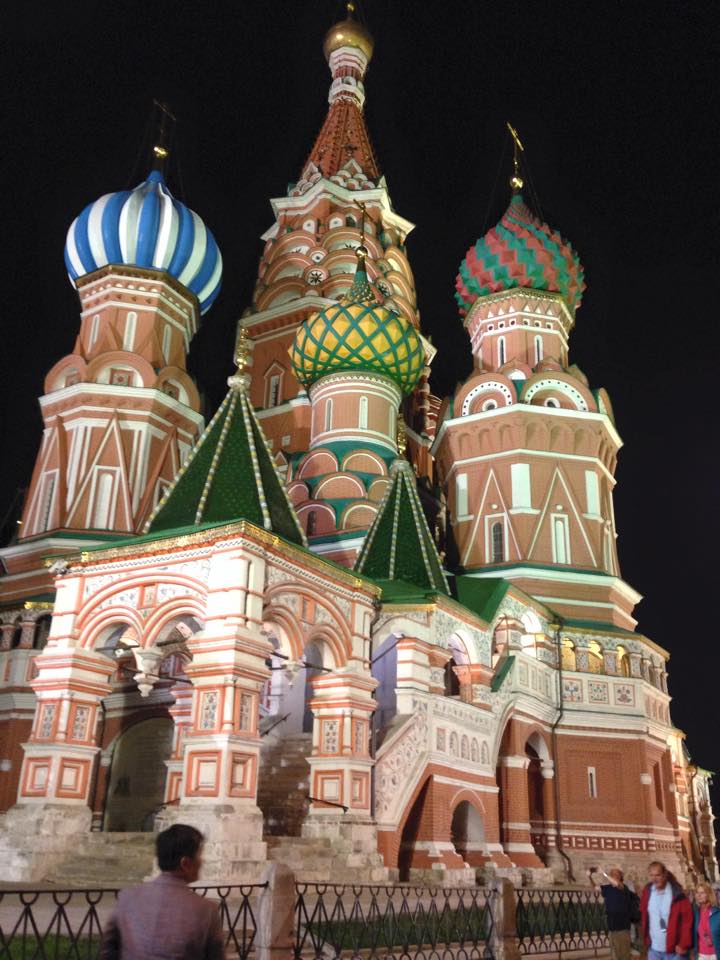Hello! It’s been a while, but I hope you’ve had a fantastic few weeks of rest, relaxation, and rebooting as we hit the back to school period known as la rentrée– the “reentry.”
If Summer 2018 taught us anything, it’s that communicating globally about sport (and other things) can help us better understand our world today. The 2018 FIFA World Cup in Russia was the main event that underscored the importance of this concept. One of the more prominent examples was how sport diplomacy enabled reporters and World Cup tourists to interact with everyday Russian people and better understand their views and culture. This sort of people-to-people exchange, where there’s some form of negotiation, representation, and communication, no matter how informal, is the very essence of sport diplomacy. Sports Illustrated’s Grant Wahl reported how his views of Russia changed as a result of meeting and communicating with Russian people throughout the tournament, as did many other reporters. Such testimonials are excellent illustrations of the power of #sportdiplomacy and the role communication plays in helping to overcome stereotypes, misperceptions, and bridge divides.
Another example was the “debate” surrounding the World Cup winning French squad and whether it was indeed Africa’s “other” team. What was meant as a positive acknowledgement of the critical roles that players of African heritage had in catapulting Les Bleus to the finals fell flat in some quarters, for in France there isn’t the concept of dual identity familiar in other countries. There’s a sense of families having double cultures, an acknowledgement of how generations of immigration from around the world has shaped and enriched the country, but that’s different from having a dual identity.
Instead, anyone can become “French” as long as they assimilate into the national republican body. While the reality is that many French with family roots in Africa, Asia, or elsewhere still suffer stigmas about being “immigrants,” regardless of how many decades ago their families immigrated, sports have long served as an incubator of citizenship, identity, and acceptance—especially the national soccer team.
I’ve written about this elsewhere (here, here, and here), and the 1998 World Cup winning team was celebrated as the promise of a multicultural French future. That vision never happened. Instead, sport—and soccer especially—became politicized as the far right-wing increasingly filled its vile rhetoric with divisive language that portrayed many of the nation’s elite athletes as “immigrant,” “the other,” and not really “French.”
This all helps to explain why there was a backlash against well-meaning attempts to mark Les Bleus as Africa’s “other” team this summer. It wasn’t just that such language is common among the far right-wing; it’s also that there’s only one public identity, especially in the failed aftermath of a black-blanc-beur 1998 victory. In fact, the national team slogan since 2014, especially as it sought to re-seduce its public after its catastrophic meltdown at South Africa 2010, was “fiers d’être bleu”—proud to be “bleu,” or proud to be French. The ability to better communicate this history, the nuances in concepts, and differing beliefs in identity may have made the “debate” much less of one. Whether it’s right or wrong in today’s globalizing world to restrict a citizenry to only one identity is an entirely different matter, as is the discussion about what France owes the African continent and its people after it’s brutal colonial past.
Les Bleus themselves tried to stay away from the controversy, aside from the occasional social media post by men like Benjamin Mendy, who emphasized they were all French. But their basketball counterparts (like Nicolas Batum and Evan Fournier) tried to communicate, especially to their English-language NBA publics, some of the nuances—a difficult feat in a short-form medium like Twitter, but one I loudly applauded.
If the Anglophone world, from the media to teams, leagues, sponsors, and other content producers, spent a little less time talking about dunks, stats, and “stars” and a little more time communicating about the different cultures and attitudes that actively shape our global sports world—whether in the Premiere League, MLB, the NBA, or elsewhere—we’d have more compelling stories, better understandings of each other, and less opportunities for misperceptions and misinformation.
Meanwhile, here’s the celebrations at the Élysée Palace and the N’Golo Kanté song to kickoff your weekend. #AllezLesBleus - Champions!!!!



